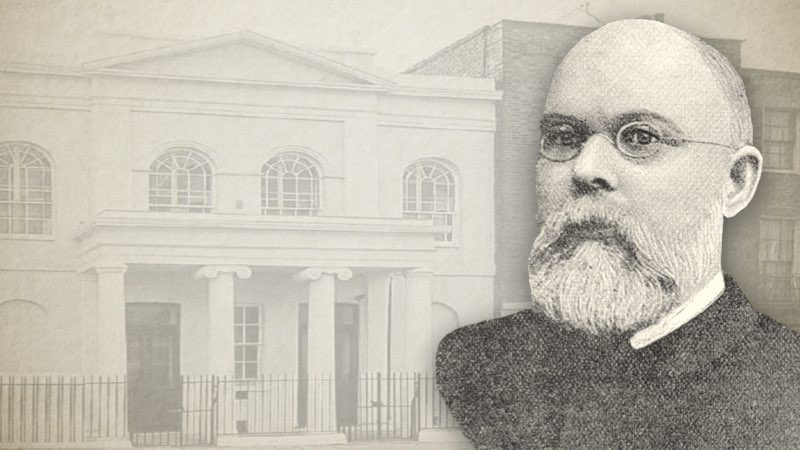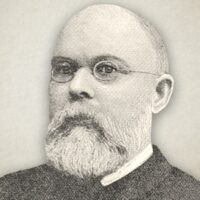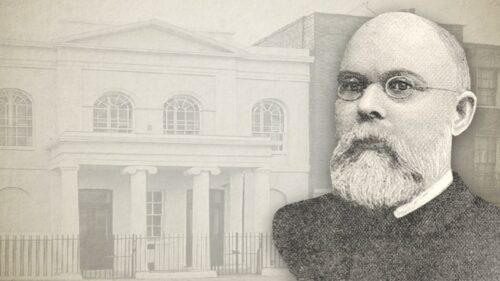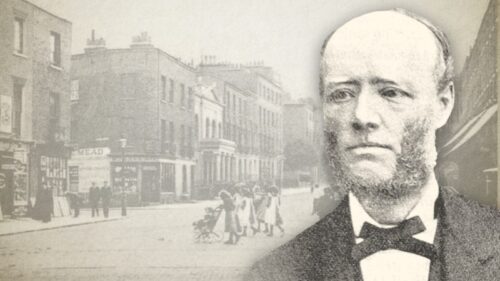
The New Covenant
“I will make a new covenant with the house of Israel.”—Jeremiah 31:31
A covenant means a contract, compact, arrangement between two or more persons. As employed by God it denotes the methods and terms in which He deals with men. He brought Israel out of Egypt by His outstretched arm, and entered into a covenant with them at Sinai. In our text He promises to enter into another arrangement with His people of a different nature to that made at Sinai, which they had broken. An understanding of this covenant, and an interest in it, are matters of paramount importance.
It is denominated “a new covenant.” This refers to the date of its publication, otherwise it existed before the other covenant. As Kent sings:—
” This cov’nant stood ere time began,
That God with men might dwell;
Eternal wisdom drew the plan,
In all things ordered well.
’Twas made with Jesus for His bride,
Before the sinner fell;
‘Twas signed, and sealed, and ratified
In all things ordered well.”
But though existing from eternity, it was only made known after the covenant of works had been broken. The old precedes the new in the order of publication. It may be called new also from its lasting character. “In that He saith a new covenant He hath made the first old. Now that which decayeth and waxeth old is ready to vanish away.” So the apostle reasons. Then, as the old is that which decays and vanishes, the new must be that which contains no element of decay, but remains in all its force and vigour, hence it is called also an everlasting covenant. The new has superseded the old, but will retain its vigour undiminished to all eternity, and never give place to another.
The new covenant is altogether different in principle to the old. It is “not according to the covenant” made at Sinai. The old covenant was conditional, the new is absolute. In the old God engaged to bless on condition of the obedience of the people; in the new He undertakes to bless unconditionally. “I will,” “And they shall,” is the language our God employs in the covenant of His grace. This is of vast importance. The great error of the so-called evangelism of the day consists in making faith the condition of the new covenant. This turns grace into law, and makes both covenants to be of the same nature, differing only in the conditions—one demanding perfect obedience to the ten commandments, and the other substituting faith in the place of perfect obedience. Were this true, the new covenant would be of no more service to us than the old—to believe savingly being equally as impossible to a sinner dead in sin as to keep the whole law. But there is not the least hint of faith as a condition in any of the editions of the new covenant contained in the Scriptures. All is absolute grace. “I will, I will,” says God; and the sweet promises, free from the least suspicion of condition on our part, breathing nothing but free favour, engage the power and faithfulness of the great Promiser alone. Faith is, indeed, requisite to salvation, but it is included in the promises, and it is the means by which we receive, and the evidence, but not the condition, of our interest in the covenant. Grace, and only grace, is exhibited here; and the whole shall redound to the praise of the glory of His grace, who devised, made known, and will fully accomplish His covenant of grace.
The leading blessings of the this covenant are set forth in the connection of our text—they are unspeakably great and precious, God promises a gracious renewal of heart. “I will put My law in their inward parts, and write it in their hearts.” This is in contrast to the law engraven on stones. So Paul writes to the Corinthians, “Ye are manifestly declared to be the epistles of Christ ministered by us, written not with ink, but with the Spirit of the living God; not in tables of stone, but in fleshly tables of the heart.” The law was written on stones; it commanded what was right and good, but it gave no power to obey. The new covenant is inscribed on the heart, where it abides a living operative force, producing gracious results. God gives a new heart, and puts His fear in the heart that we depart not from Him:—
“To work and run the law commands,
But gives me neither feet nor hands;
But better news the Gospel brings,
It bids me fly, and gives me wings.”
A blessed relation stands next in the list of favours. “I will be their God, and they shall be My people.” To set forth the fulness contained in these words surpasses the powers of Gabriel. Here is wondrous grace and condescension on God’s part. Here is highest privilege bestowed on us. This relation assures us of constant, never-ceasing, watchful protection, a full supply of all needed provision, and final blessedness in heaven. What harm can come to those who have Jehovah for their God? What good thing can they lack? What bliss must be their portion!
“I must have all things, and abound,
While God is God to me.”
What privileges this relation confers! We are secure of a refuge in every danger, comfort in every sorrow, help in every time of trouble, and deliverance in every trial and affliction. He that can rightly say, “My God,” needs nothing more. The covenant gives us this rich blessing.
A divine education is also promised. “They shall teach no more every man his neighbour, and every man his brother, saying, Know the Lord; for they shall all know Me from the least of them to the greatest of them, saith the Lord.” This does not dispense with means, but secures effectual teaching. God Himself undertakes the education of His people. “They shall be all taught of the Lord.” Whatever instruments He may please to employ, the efficacy is entirely from His Spirit. The dullest scholar learns in this school. God imparts the capacity to learn, and brings home the lessons to the heart. We know Him as revealed in His dear Son. “Everyone that has heard, and learned of the Father, cometh unto Me,” said Jesus. This is true, spiritual, and experimental knowledge; and to know God in Christ is eternal life.
Last, but by no means least, comes forgiveness of sins. “I will forgive their iniquity, and I will remember their sin no more.” Blessed promise, bringing joy and peace into the soul wherever it comes in power! Free, full, unrepealable forgiveness of sins! This tunes our harps to praise Him, and stirs up all our powers. “Bless the Lord, O my soul, and all that is within me, bless His holy name. Bless the Lord, O my soul, and forget not all His benefits. Who forgiveth all thine iniquities!” Here is, indeed, matter for the highest praise. Gracious and ever-blessed Spirit, unfold this covenant to our minds; give us to understand its nature, and to experience its blessings; engrave it deeply on the fleshly tables of our hearts, that it may keep us in every hour of temptation; make it the joy and comfort of our souls, and enable us to glorify its great Author!
Earthen Vessel 1895
Edward Mitchell (1843-1919) was a Strict and Particular Baptist preacher. After serving twelve years as pastor of the church in Guilford (1877-1889), he was appointed the pastor of Mount Zion, Chadwell Street, Clerkenwell (1889-1914). He also served as President of the Metropolitan Association of Strict Baptist Churches, President of the Strict Baptist Mission, Editor for the Earthen Vessel and the Gospel Herald.





